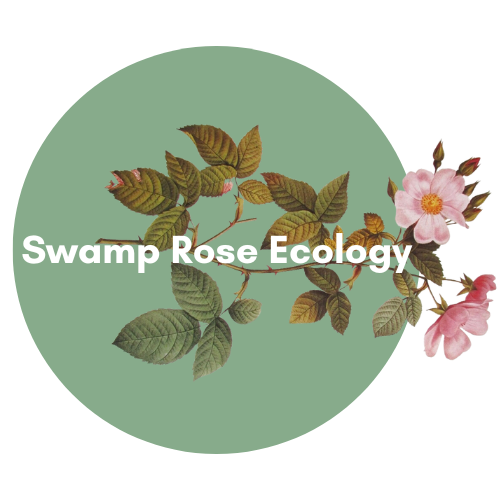Beneficial Mycorrhizal Fungi Inoculation
At Swamp Rose, we believe in using natural ecological cycles to restore and enhance habitats whenever possible. One of the innovative techniques we employ is mycorrhizal inoculation—a process that leverages the symbiotic relationship between plants and beneficial fungi called mycorrhizae. This approach is well-documented as being highly effective in promoting healthy ecosystems and accelerating habitat recovery. Let's explore the benefits of mycorrhizal inoculation and how it can transform your habitat restoration project.
Enhanced Nutrient Uptake:
Mycorrhizal fungi establish a mutually beneficial partnership with plant roots. These fungi form a network of fine threads called hyphae, which extend into the surrounding soil. The hyphae act as extensions of the plant root system, greatly increasing the surface area available for nutrient absorption. This enhanced nutrient uptake improves the overall health and vitality of the plants, ensuring their successful establishment and growth during the restoration process.
Improved Drought Resistance:
Mycorrhizal inoculation can play a crucial role in mitigating the effects of drought on newly restored habitats. The fungal hyphae effectively scavenge and transport water from the soil to the plant roots, helping plants access water sources that may otherwise be inaccessible. This mechanism enhances the drought resistance of the plants, enabling them to thrive in challenging environmental conditions and reducing the need for excessive watering.
Disease and Pest Resistance:
By establishing a symbiotic relationship with plants, mycorrhizal fungi not only enhance nutrient uptake but also bolster the plant's natural defense mechanisms. The presence of mycorrhizae stimulates the plant's immune system, making it more resistant to pests and disease. This is a particularly important function of fungi when eliminating the use of chemical interventions, which creates a healthier and more sustainable habitat restoration approach.
Soil Health and Erosion Control:
Mycorrhizal inoculation also offers long-term benefits for soil health. The presence of mycorrhizal fungi enhances soil aggregation, improving its structure and stability. This, in turn, reduces erosion by preventing soil particles from being carried away by wind or water. Additionally, mycorrhizae contribute to organic matter decomposition, nutrient cycling, and the creation of stable soil aggregates, fostering a fertile environment for plant growth and overall ecosystem resilience.
Ecological Succession Facilitation:
In habitat restoration, the goal is to accelerate ecological succession—the process by which an ecosystem transitions from disturbance to stability. Mycorrhizal fungi play a vital role in this process by facilitating the establishment of native plant species, which are often the building blocks of a stable ecosystem. By promoting faster and more efficient plant colonization, mycorrhizal inoculation can expedite the transition from early successional stages to more diverse and resilient habitats.
Swamp Rose Ecology specializes in the application of mycorrhizal inoculation techniques tailored to the specific needs of your habitat restoration project. Our experienced ecologists understand the intricate relationship between plants and mycorrhizae, and we are dedicated to maximizing the benefits of this natural symbiosis for the success of your restoration endeavor.
We encourage the use of mycorrhizal inoculation in most planting projects. Mycorrhizae can also be applied at any time after planting. If you would like to include beneficial fungi in a planting project or would like to add it to existing plants, contact us using the information provided below.
